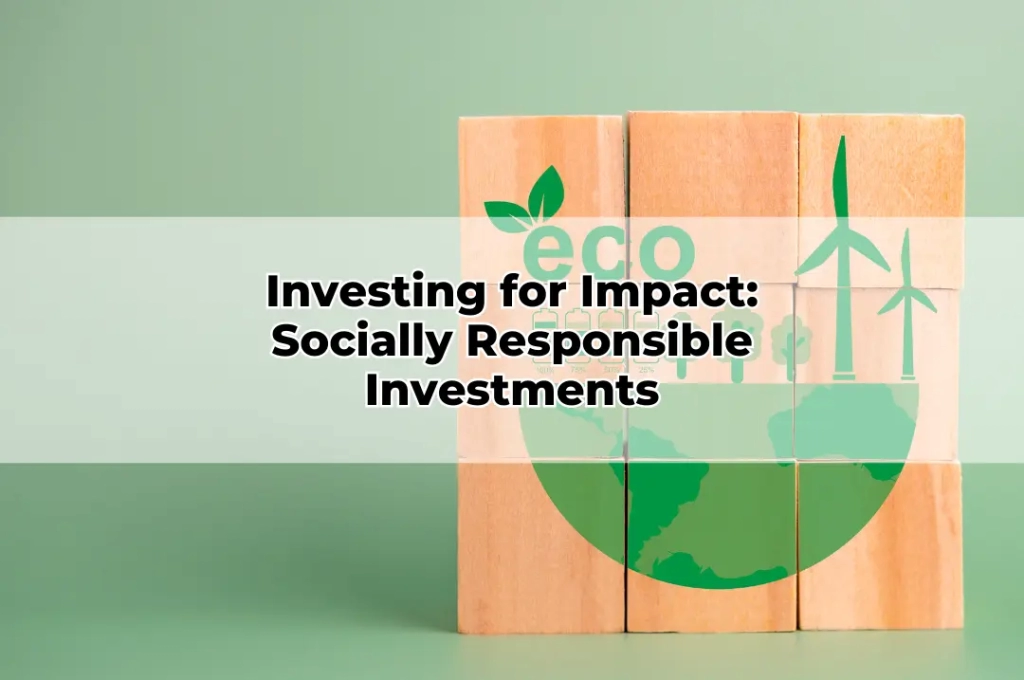Investing for Impact: Socially Responsible Investments
Table of Contents
ToggleSocially responsible investing (SRI) has gained significant traction in recent years, as investors seek to align their financial goals with their ethical values. The growing awareness of environmental, social, and governance (ESG) issues has led to a shift in investment strategies, influencing both individual and institutional investors. This blog post explores the principles of SRI, the benefits and challenges, and how it fits within a comprehensive financial plan.
What is Socially Responsible Investing (SRI)?
Socially responsible investing involves choosing investments based on ethical, social, and environmental criteria alongside traditional financial considerations. It prioritises businesses that demonstrate corporate responsibility while avoiding industries linked to harm, such as tobacco, weapons, and fossil fuels. By integrating ESG factors into investment decisions, investors aim to generate long-term, sustainable returns while making a positive impact.
The Rise of Ethical Investing
The increasing demand for ethical investment options has been fuelled by global issues such as climate change, social inequality, and corporate governance scandals. As more investors seek to contribute to positive societal change, financial institutions have responded by expanding their range of socially responsible funds and ethical investment portfolios.
ESG Criteria: The Pillars of Responsible Investing
Environmental, Social, and Governance (ESG) factors form the backbone of socially responsible investing:
- Environmental: Focuses on a company’s impact on climate change, resource depletion, and pollution control.
- Social: Evaluates labour practices, human rights, diversity, and community impact.
- Governance: Assesses corporate leadership, transparency, and ethical business practices. Investors use these criteria to screen potential investments and ensure their portfolios align with their values.
The Financial Performance of Socially Responsible Investments
A common misconception is that ethical investments underperform compared to traditional investments. However, research suggests that companies with strong ESG practices often exhibit lower risk, higher resilience, and sustainable long-term growth. By prioritising responsible governance and environmental sustainability, these companies may attract more investors and consumers, enhancing their profitability.
The Role of SRI in Financial Planning
Incorporating socially responsible investments into a financial plan requires a strategic approach. A professional financial adviser can help investors identify ethical funds, balance risk, and ensure alignment with financial goals. Whether planning for retirement or building wealth, SRI can be a crucial component of a diversified portfolio.
Impact Investing vs. ESG Investing
Impact investing and ESG investing share similarities but differ in intent:
- ESG investing considers environmental, social, and governance factors in investment decisions but does not always prioritise direct impact.
- Impact investing focuses explicitly on generating positive social or environmental outcomes while seeking financial returns. Understanding these distinctions helps investors choose the right approach based on their values and objectives.
Ethical Investment Options in Australia
Australia offers a growing selection of socially responsible investment options, including:
- Ethical managed funds screening companies for ESG performance.
- Green bonds financing renewable energy and sustainability projects.
- Exchange-traded funds (ETFs) tracking ethical indices.
- Direct investment in sustainable businesses supporting industries like clean energy and ethical banking. With the right guidance from a qualified financial adviser, investors can navigate these options effectively.
Challenges of Socially Responsible Investing
Despite its appeal, SRI comes with challenges:
- Greenwashing: Some companies exaggerate their ESG credentials to attract investors.
- Limited investment options: Ethical funds may have fewer diversification opportunities.
- Potential trade-offs: Some ESG-focused investments may have higher fees or lower short-term returns. A diligent approach and expert financial advice can help mitigate these risks.
How to Start Investing Responsibly
Investors interested in socially responsible investing should:
- Define their values and ethical priorities.
- Research investment options and fund managers’ ESG criteria.
- Diversify to balance ethical considerations with financial performance.
- Seek guidance from a professional financial adviser to ensure informed decision-making. By following these steps, investors can align their portfolios with their beliefs without compromising on returns.
The Role of a Financial Adviser in SRI
A financial adviser plays a crucial role in helping investors navigate the complexities of socially responsible investing. With expertise in financial planning and ethical investment strategies, a professional can tailor a portfolio to align with personal values while optimising returns. Whether seeking an online financial adviser or consulting a Toowoomba financial adviser, working with a specialist ensures informed investment decisions.
Conclusion
Socially responsible investing is more than a trend; it’s a powerful strategy for building wealth while fostering positive societal and environmental change. With the right approach and expert financial advice, investors can achieve both ethical and financial goals. As demand for financial planning in Toowoomba grows, Wealth Factory remains committed to guiding clients toward responsible and rewarding investment opportunities.
For personalised retirement financial advice or assistance in structuring an ethical investment portfolio, contact Wealth Factory today.









